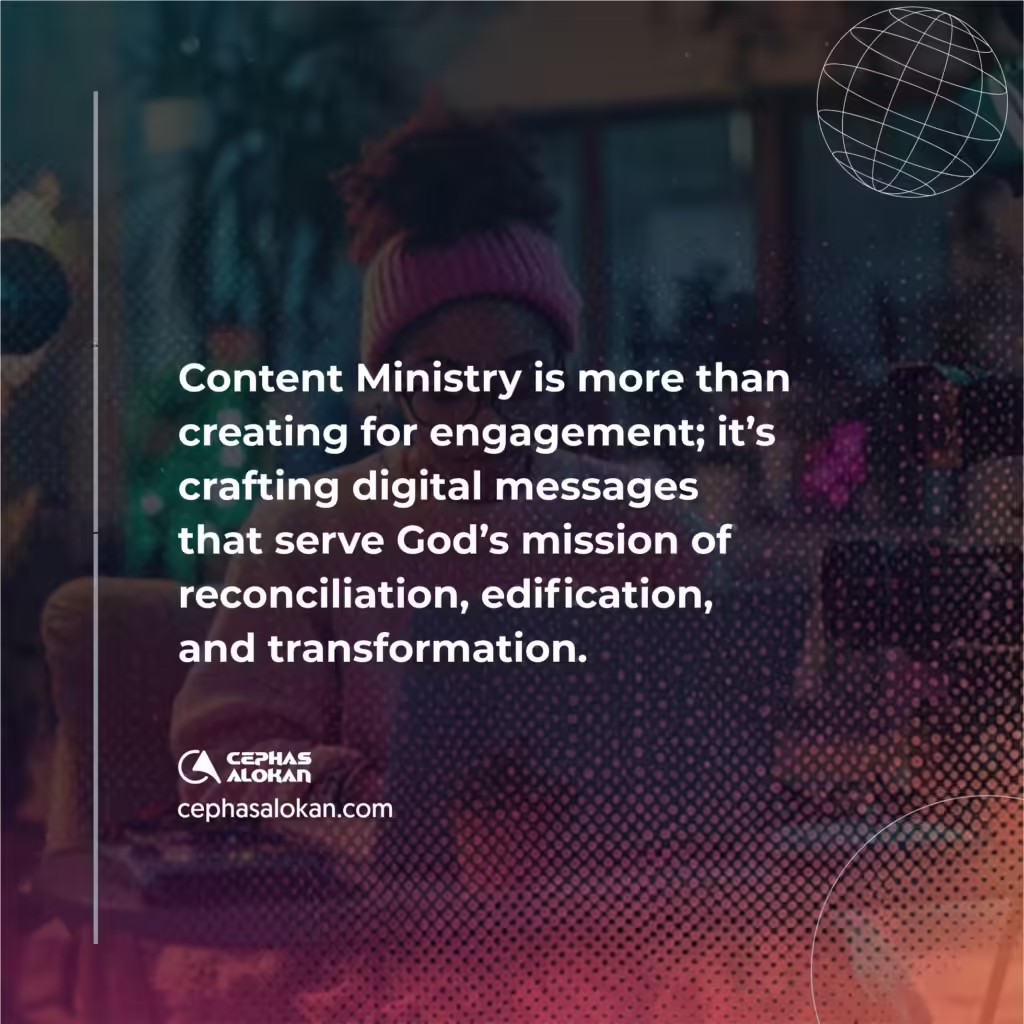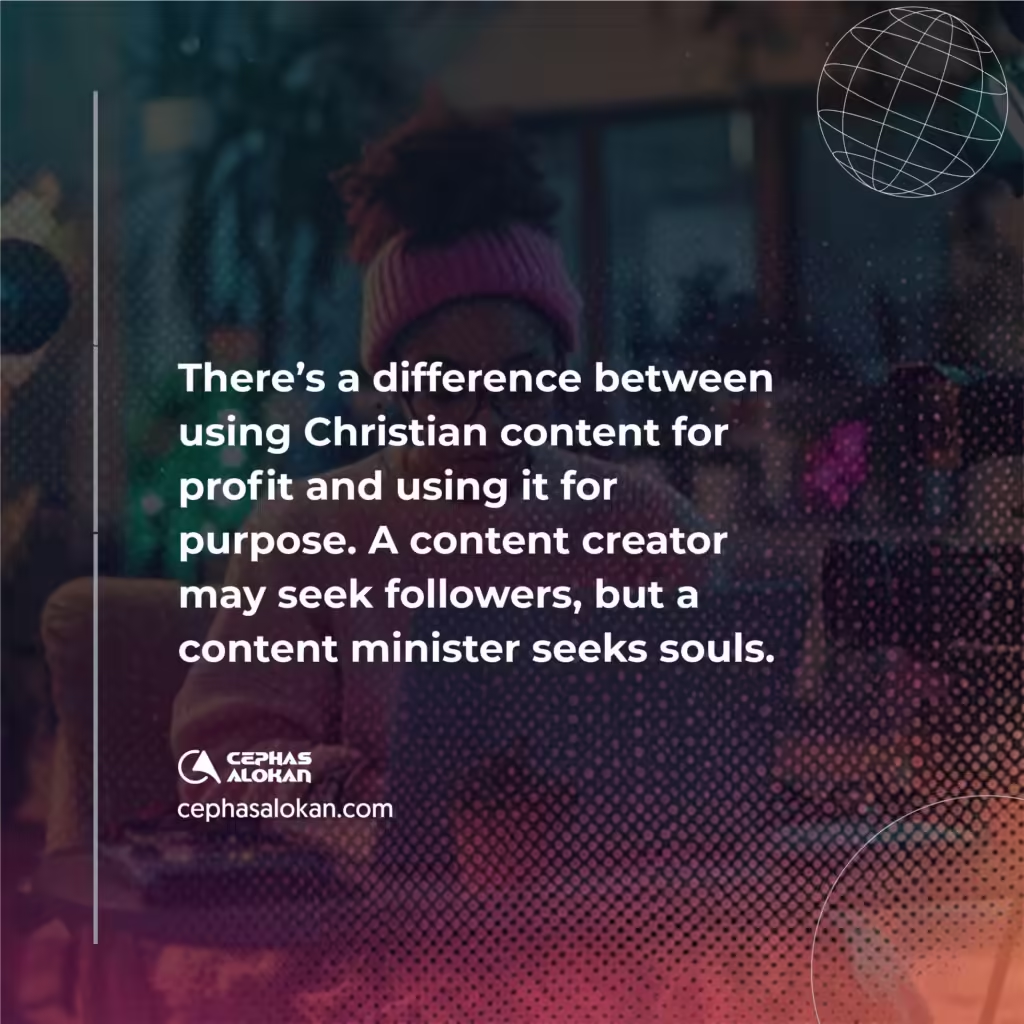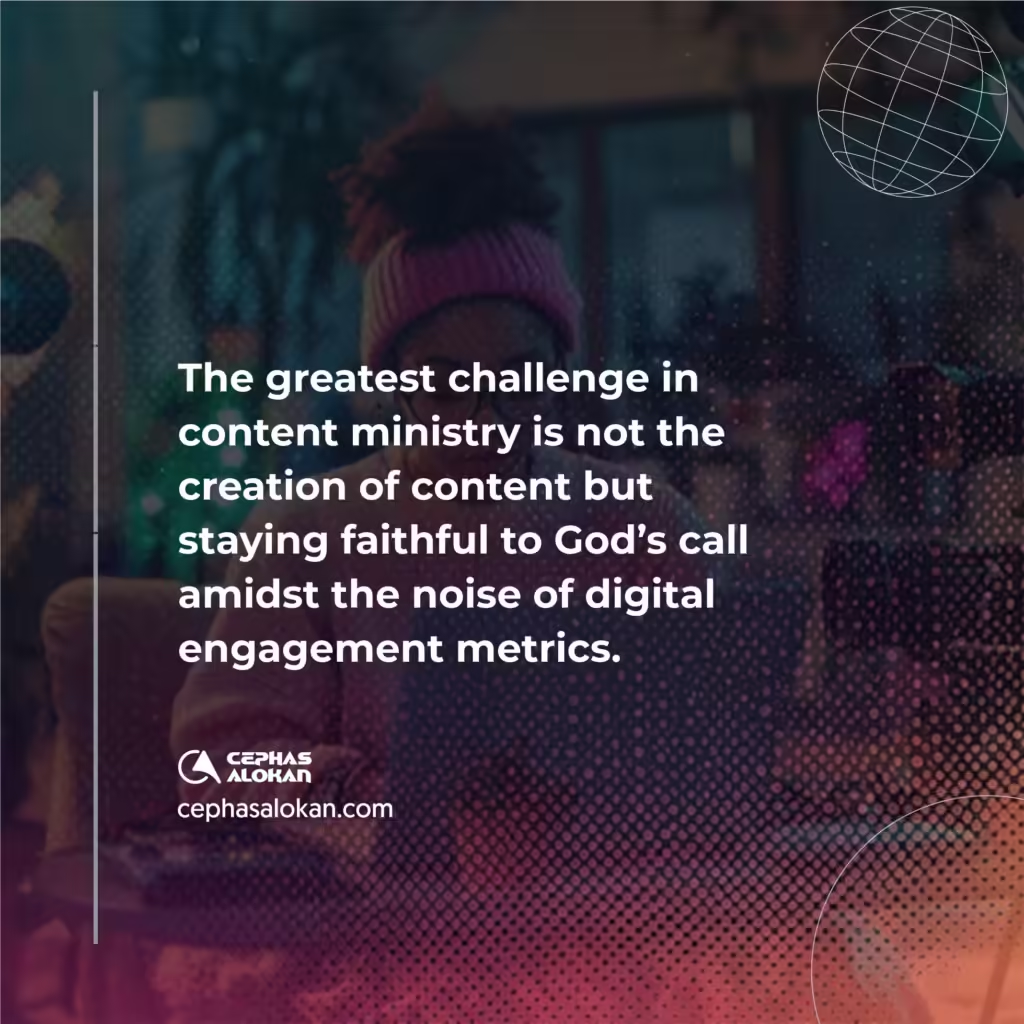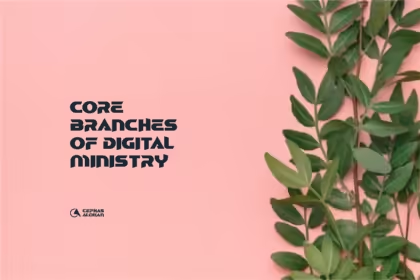Have you ever heard of the term Content Ministry? If not, you’re not alone. It’s actually a concept I developed when I was searching for a way to describe those who engage in ministry online solely through the creation and sharing of content. I’ll share more about how this idea came to be a bit later, but for now, I’d like to invite you on a journey to explore this intriguing facet of digital ministry.
In my experience, whenever I aim to define new concepts within the realm of digital ministry, I find it helpful to break them down into their fundamental components. This approach not only makes the concepts easier to understand but also allows us to appreciate how each element contributes to the whole. So, to grasp what Content Ministry truly means, we’ll start by defining the two key terms individually: content and ministry.
You can’t fully understand Content Ministry without first understanding ministry itself. After all, Content Ministry is an aspect of ministry—specifically within the digital landscape.
So, what exactly is ministry? What do we mean by content in this context? And how do these two concepts merge to become Content Ministry?
What is Ministry?
At its core, ministry in simple terms is the act of serving others in alignment with God’s will, aiming to advance His Kingdom and bring glory to Him. It’s about embodying Christ’s love and compassion, reaching out to meet both the spiritual and physical needs of others.
- Biblical Foundation: Jesus exemplified ministry through His life—healing the sick, teaching the masses, and ultimately sacrificing Himself for man’s redemption.
- Scriptural Reference: “For even the Son of Man came not to be served but to serve, and to give his life as a ransom for many.” — Mark 10:45 (ESV)
Ministry isn’t confined to the walls of a church; it’s a lifestyle of service and obedience to God’s calling.
What is Content?
In a broad sense, content refers to any information or experiences communicated through various forms of media. This includes text, images, videos, audio, and interactive elements.
- Purpose of Content: To convey a message, tell a story, or provide value to an audience.
- Forms of Content:
- Written: Articles, blogs, ebooks
- Visual: Graphics, photography, infographics
- Audio: Podcasts, music, sermons
- Video: Films, vlogs, animations
- Interactive: Quizzes, webinars, live chats
In the digital world, content is the heartbeat of communication, connecting people across the globe.
Defining Content Ministry
So, how do we define Content Ministry?
Content Ministry is the intentional creation and distribution of digital content that serves others according to God’s will, aiming to advance His Kingdom and bring glory to Him. It’s about using various media forms to minister to people’s hearts, minds, and spirits in the digital world.

The Birth of The Concept of Content Ministry
Let me share a personal experience with you. A few years ago, I had the privilege of joining the faculty of the International School of Ministry led by Apostle Femi Lazarus. Tasked with developing a curriculum, I faced a unique challenge.
The digital world, I realized, has its own culture and dynamics. While we have well-defined branches like digital missions, evangelism, discipleship, and digital church, there was a group that didn’t neatly fit into any of these categories.
These were individuals who created and shared content—bloggers, vloggers, content curators—without necessarily engaging in traditional ministry activities like evangelism or discipleship. They produced valuable content, left it online, and moved on.
Through prayer and reflection, it became clear to me that these individuals were indeed serving God’s purpose. If their content was designed to reconcile people to God and edify the body of Christ, they were ministering in their own unique way. This revelation led to the coining of the term Content Ministry.
Biblical Foundations for Content Ministry
The Bible itself is a remarkable compilation of content inspired by God to guide, teach, and transform us. It encompasses a diverse range of literary forms—historical narratives, laws, poetry, prophecy, wisdom literature, Gospels, and letters—all woven together to reveal God’s character and His plan for humanity.
One prominent example is the Apostle Paul, who extensively used letters (epistles) to communicate with early Christian communities across the Roman Empire. These letters make up a significant portion of the New Testament and were instrumental in teaching doctrine, correcting errors, encouraging believers, and unifying the early church.
If Paul were ministering in today’s world, he might utilize modern technology to reach believers more efficiently. Imagine him sending emails to the churches, attaching documents filled with spiritual wisdom and apostolic guidance—essentially his epistles in digital form. He might host virtual meetings via video conferences with the churches, write blog posts to the unbelievers, or engage with communities through social media platforms.
This perspective emphasizes that while the mediums of communication have evolved—from parchment and ink to digital texts and multimedia—the core mission remains unchanged: to convey God’s truth and nurture spiritual growth.
Content Ministry as a Branch of Digital Ministry
Content Ministry stands alongside other branches of digital ministry, such as:
- Digital Evangelism
- Digital Discipleship
- Digital Missions
- Digital Church
What sets Content Ministry apart is its focus on the creation and dissemination of content as the primary means of ministry.
How Content Ministry Interacts with Other Branches
Because content lies at the heart of any online activity, every other branch of digital ministry must first interact with content ministry. Whether it’s digital evangelism, discipleship, or missions, each of these areas relies on content as their primary tool for engagement.
- Digital Evangelists rely on videos, articles, and social media posts to share the Gospel. Before they can start their ministry, they need to create or access meaningful content.
- Digital Discipleship depends on creating study materials, devotionals, and teaching videos that guide people toward spiritual maturity. The content becomes the foundation for their work.
- Online Church Services need well-curated sermons, music, and other media to engage their congregation and attract new members.
In short, Content Ministry is a critical foundation that supports all other branches of digital ministry. Without the creation and distribution of engaging, biblical content, no other digital ministry can fully thrive.

Types of Content in Digital Ministry
Let’s explore the various types of content used in digital ministry and how they’ve been instrumental in spreading the Gospel.
1. Written Content
- Blogs and Articles: Provide in-depth teaching, testimonies, and encouragement.
- Ebooks and Devotionals: Offer structured guidance on specific topics.
- Social Media Posts: Share bite-sized inspiration and Scripture.
Example: A daily devotional blog that helps readers start their day with God’s Word.
2. Visual Content
- Graphics and Infographics: Simplify complex ideas and make them shareable.
- Photography: Captures moments of worship, mission work, and God’s creation.
- Memes: Use humor to convey spiritual truths.
Example: An infographic illustrating the armor of God from Ephesians 6.
3. Audio Content
- Podcasts: Discuss theology, Christian living, and interviews with faith leaders.
- Worship Music: Leads listeners into God’s presence.
- Audio Sermons: Allows people to hear God’s Word on-the-go.
Example: A weekly podcast exploring the intersection of faith and daily life.
4. Video Content
- Sermons and Teachings: Extend the reach of church services beyond physical walls.
- Testimonies: Share personal stories of God’s transformative power.
- Animations and Short Films: Illustrate biblical narratives creatively.
Example: A YouTube channel featuring animated Bible stories for children.
5. Interactive Content
- Webinars and Live Streams: Enable real-time engagement and teaching.
- Online Courses: Provide structured learning on various topics.
- Quizzes and Surveys: Encourage self-reflection and learning.
Example: A live Q&A session addressing tough theological questions.
What Content Ministry Is Not
There is a growing trend where some people think they are engaging in Content Ministry when in fact they are creating content solely for engagement, likes, or rewards from social platforms. While these individuals may be using Christian content, their primary goal is to build a following or gain profit, not to minister or serve in alignment with God’s calling.
Content for Engagement vs. Ministry
- Engagement-Focused Content: Aims primarily for likes, shares, and social media rewards.
- Ministry-Focused Content: Prioritizes obedience to God’s calling over popularity.
Some creators use Christian themes to build a following or monetize their platforms. While they might share Bible verses or spiritual insights, their primary goal is personal gain, not serving God’s purpose.
We need to differentiate between content creators who happen to use Christian content for personal gain and Christian content creators who are digital ministers. The latter is someone who, after being trained in what ministry truly means, uses content as a tool for God’s calling. Their focus is on reconciliation, edification, and bringing people closer to Christ, not just on gaining social media engagement or monetizing their content.
The key difference lies in the heart and purpose behind the content.
Challenges and Pitfalls in Content Ministry
Engaging in Content Ministry comes with unique challenges that require vigilance and reliance on God. These are few common challenges you might encounter
1. Digital Addiction: Excessive screen time can lead to distractions, ability to lose control of your digital devices, neglect of personal relationships and spiritual disciplines.
2. Balancing Engagement with Obedience: Focusing on metrics (likes, shares) over God’s leading. This is common today.
3. Content Burnout: Creative exhaustion from constant content production.
4. Temptation to Conform: Diluting the Gospel to appeal to broader audiences.
Content Ministry Tools and Platforms
Leveraging the right tools can enhance the effectiveness of your Content Ministry.
Social Media Platforms
- Facebook: For community building and live events.
- Instagram: Visual storytelling and engagement.
- Twitter: Sharing quick insights and links.
- TikTok: Reaching younger audiences with short, creative videos.
Content Creation Tools
- Writing: Grammarly, Scrivener for drafting and editing.
- Graphic Design: Canva, Adobe Photoshop for creating visuals.
- Video Editing: Adobe Premiere Pro, Final Cut Pro, or mobile apps like InShot.
- Audio Production: Audacity, Adobe Audition for podcasts and music.
Content Management and Distribution
- Websites and Blogs: WordPress, Wix for hosting your content hub.
- Email Marketing: Mailchimp, SendinBlue for newsletters and updates.
- Analytics: Google Analytics, social media insights to track engagement.
Choose tools that align with your content type and audience needs.

Embracing the Call of Content Ministry
Stepping into Content Ministry is a journey of faith, creativity, and service. It’s about answering God’s call to use your unique gifts to share His message in the digital realm. This path combines your passion for content creation with a heart dedicated to ministry, allowing you to reach people far beyond your immediate community.
Practical Steps to Get Started
- Seek God’s Guidance: Pray for clarity on your calling and message.
- Define Your Message: What unique insights has God given you?
- Understand Your Soul Persona: Who are you called to serve? What are their needs?
- Choose Your Platforms: Select mediums that best convey your message.
- Create Consistently: Develop a content schedule that maintains engagement.
- Engage Authentically: Build relationships with your audience.
We are building an academy and mentorship platform called The Creative Forge, with a vision to raise 1,000 content creators. You can join the waiting list to receive updates about the academy and mentorship.
You are also welcome to join our community of digital ministers for engagement and updates.
Building a Support System
- Mentorship: Connect with experienced content ministers.
- Community: Join groups or networks of like-minded Christian creators.
- Feedback: Welcome constructive criticism to grow and improve.
Final Thoughts: Your Role in God’s Digital Agenda
Remember, your content can be a vessel of God’s love, truth, and hope to a world in need.
- Stay Grounded: Let Scripture be the foundation of all you create.
- Remain Humble: Acknowledge that it’s God’s work through you.
- Be Courageous: Don’t shy away from addressing tough topics as led by the Spirit.
- Celebrate Small Wins: Every life touched is a victory in God’s Kingdom.
Thank you for journeying through this exploration of Content Ministry with me. I hope this comprehensive guide has provided clarity, inspiration, and practical insights to empower you in your digital ministry endeavors.
If you have any questions or would like to discuss further, feel free to reach out or let me know your thoughts in the comment section below. You can also join our community for interactions and networking.
Blessings to you as you create and minister in His name!







Great
This is not only elaborate but very insightful and educative. May God keep you for his kingdom.
Amen
Thank you Sir